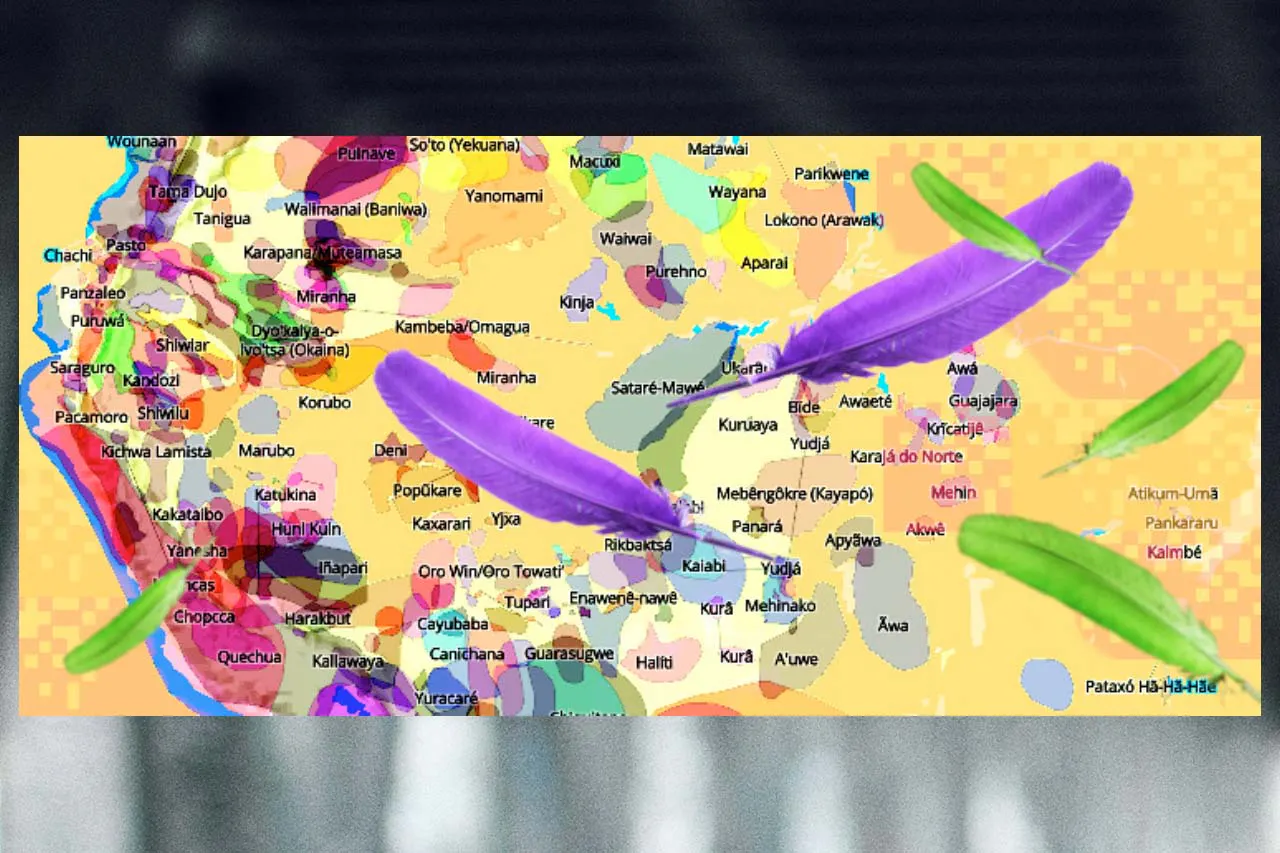Willkommen in der Zukunft, in der Bitcoin-Bros alte Kohlekraftwerke wieder anfeuern, mächtige Politikerinnen Facebook fürchten und brillante Köpfe zornigen jungen Männern verfallen.
Viel los gerade – ein neues Buch über Peter Thiel, »The Contrarian (Öffnet in neuem Fenster)«, neben lustigen Anekdoten von halsbrecherischen Autofahren erzählt es, wie ein zorniger Außenseiter zum Anführer der Silicon-Valley-Sekte werden konnte. Dann: Die Sprach-Wundermaschine GPT-3 hat das Internet eingeatmet und spuckt lustige Geschichten aus, zu denen Meghan O'Gieblyn ein Essay (Öffnet in neuem Fenster) über das Unterbewusstsein des Webs und Hypnose schreibt. Und so viel mehr, los geht's:
Facebookistan
Facebookland (Öffnet in neuem Fenster): Der Atlantic macht den Rezo, tritt einen Schritt zurück, schaut sich die Fakten und ganzen Skandale nochmal neu an und spitzt ein wenig zu – und schon ist Facebook die »Largest Autocracy on Earth«.
Teens Girls Body Image (Öffnet in neuem Fenster): Das Wall Street Journal veröffentlicht weiter unheimliche Dokumente aus dem Inneren des Konzerns – gerade hat Facebook probiert, selbst Material zu veröffentlichen und das Narrativ zu beeinflussen. Diese Folien hier haben sie aber lieber weggelassen.
Something Weird Is Happening on Facebook (Öffnet in neuem Fenster): In den USA tauchen virale Posts mit harmlosen Fragen auf, mit denen sich womöglich Profile bauen oder anreichern lassen. Jedenfalls geben da Leute Geld aus und es gibt bisher keine bessere Erklärung dafür.
How Google Spies on Its Employees (Öffnet in neuem Fenster): Screenshotting and using encrypted messaging apps at the same time. Google employees can attract scrutiny from the company’s corporate security team through ordinary actions. Now a new trial is calling attention to the search giant’s surveillance of staffers.
Medien
How tech is inventing better ways to read the internet (Öffnet in neuem Fenster): The market for read-later apps is heating up again, and the apps are much smarter this time.
Transformative Zeiten (Öffnet in neuem Fenster): Die traditionellen Medien scheitern daran, sich in Ton und Inhalten zu öffnen. Eine mediale Kompletterneuerung ist angesagt.
Die Scheinfluencer (Öffnet in neuem Fenster): Die PR-Agentur Storymachine gibt sich geheimnisvoll. Seit Jahren rätselt die Medienbranche, was die Gründer um den Ex-"Bild"-Chef Kai Diekmann eigentlich machen. Was verkaufen die?
The New Pornographers (Öffnet in neuem Fenster): Consumer technology reviewers have failed their basic nominal purpose of critiquing tools. Instead, inspired by values introduced by Apple in the late 1990s, the tech review industry prioritizes aesthetic lust as the primary critical factor for evaluating objects.
Why The New York Times’ Wirecutter is ramping up focus on style (Öffnet in neuem Fenster): »Style guides, more than other categories, is something a reader might click on just to read, even if they weren’t looking for that exact product.«
Open Parliament TV (Öffnet in neuem Fenster): Bundestags-Redebeiträge, synchronisiert mit den Plenarprotokollen, Wort für Wort durchsuchbar.
Ozy: A Modern Media Company
Die Millennial-Seite Ozy hat Millionen eingesammelt und sich gerühmt, Millionen Menschen mit den News von Morgen zu erreichen. Auch wenn praktisch niemand jemals Links auf Ozy-Content in the wild gesehen hat. Eine Enthüllung bringt jetzt offenbar alles zum Einsturz. Anwälte ermitteln, ein früher Investor gibt seine Anteile auf, Mitarbeiter:innen laufen weg.
A $40 Million Conference Call Gone Wrong (Öffnet in neuem Fenster): In einem Call mit der Bank Goldman Sachs hat sich jemand von Ozy als YouTube-Manager ausgegeben und Ozy gefeiert.
18-hour days and panic attacks (Öffnet in neuem Fenster): Former Ozy staffers allege an abusive environment.
But is it? (Öffnet in neuem Fenster) Ozy says it’s great at discovering big names before the mainstream media.
Longreads

Babel. Could a machine have an unconscious? (Öffnet in neuem Fenster) »The frequent reminders in the machine-learning community that the model is mindless and agentless, that it has no actual experience of the world, were repeated so often they began to feel compulsive, one of those verbal fixations meant to quell the suspicion that the opposite is true.«
Peter Thiel’s Origin Story (Öffnet in neuem Fenster): His ideology dominates Silicon Valley. It began to form when he was an angry young man.
The Internet's Original Sin (Öffnet in neuem Fenster): Ein langes, ausführliches Q&A mit Shoshana Wodinksy, die über die Online-Werbebranche berichtet. Es geht um automatische Anzeigen, persönliche Daten und Milliarden von Dollar.
Climate Change Is the New Dot-Com Bubble (Öffnet in neuem Fenster). The free market has plenty of grandiose ideas about how to fix our broken planet. There's just one problem: We can't afford another bust.
How the Mafia Is Pivoting to Cybercrime (Öffnet in neuem Fenster). Investigators from Spanish and Italian police explain how organized crime is going online and expanding into cybercrime.
Probable Futures (Öffnet in neuem Fenster): Interactive maps of future climate scenarios using widely accepted climate models, along with stories and explanations designed to help you understand our changing world.
»Dune« Foresaw—and Influenced—Half a Century of Global Conflict (Öffnet in neuem Fenster): From Afghanistan to cyberattacks, Frank Herbert’s novel anticipated and shaped warfare as we know it.
What trees tell us about the internet (Öffnet in neuem Fenster): The wood wide web is ancient, but it’s new to us.
Tell me, do you intend to fuck it? (Öffnet in neuem Fenster) People still call the iPhone »sexy«. Not only tech dudes or horny teenagers but ordinary people. This shouldn’t be happening.
Uncivilizing Digital Territories (Öffnet in neuem Fenster): Current digital technologies are the products of cultures that aren't aligned with nature. Can we subvert them to empower nature-based cultures and strenghten local communities?
What happens when the experience of celebrity becomes universal? (Öffnet in neuem Fenster) »The Western intellectual tradition spent millennia maintaining a conceptual boundary between public and private—embedding it in law and politics, norms and etiquette, theorizing and reinscribing it. With the help of a few tech firms, we basically tore it down in about a decade.«
Infrastruktur

Bitcoin miners align with fossil fuel firms (Öffnet in neuem Fenster): Crypto-Bros feuern bereits stillgelegte Kohlekraftwerke wieder an, verbrennen härtesten Kohledreck und klopfen sich dafür auch auf die Schultern. Irre.
Twitter baut NFT-Schaufenster (Öffnet in neuem Fenster): Wer NFTs gekauft hat, kann die künftig wohl direkt auf Twitter ausstellen.
Digitaler Führerschein vorerst gestoppt (Öffnet in neuem Fenster): Die Bundesregierung hat den Start eines weiteren E-Government-Projekts vermasselt: Die App für den digitalen Führerschein wurde aus den App-Stores genommen.
Der Roll-out des E-Rezepts ist vorerst abgeblasen (Öffnet in neuem Fenster) – ob die gesetzliche Frist zur verpflichtenden Einführung am 1. Januar gehalten werden kann, steht in den Sternen.
Google is rethinking search (Öffnet in neuem Fenster) because TikTok and podcasts are taking over the internet: Multimedia search is a core focus for Google going forward.
Amazon's Global Distribution Infrastructure (Öffnet in neuem Fenster): Lange Listen mit Abkürzungen und Quadratmeterzahlen zeigen ein Netzwerk mit Knoten aus Beton. Eine riesige Maschine, die palettenweise Kram einsaugt, sortiert und wieder ausspuckt.
🎧 Land of the Giants: The Apple Revolution (Öffnet in neuem Fenster). Even if you don't use Apple products, you still live in a world the company has completely reshaped: It's created new industries, wiped out giant competitors, and changed the way all of us live.
Internet Explorer
Server Room Noise Generator (Öffnet in neuem Fenster): Close your eyes. You are surrounded by the electronic brains of the modern world; each processing requests, crunching data, and assembling responses at almost light speed.
The Apocalyptic Retweets of William Gibson (Öffnet in neuem Fenster): Nowhere else online captures the relentless, churning dread than the retweets of @GreatDismal.
📺 Trailer für »The Billion Dollar Code« (Öffnet in neuem Fenster): No one knows this story. In Berlin in the 90s, two friends, Carsten and Juri, create Terra Vision, something that seemed impossible at the time: the precursor to Google Earth. 25 years later, the German computer nerds are facing the global corporation in court.
Das war Ausgabe #77 von THEFUTURE (Öffnet in neuem Fenster), dem Newsletter über das wilde Internet und die Zukunft der Medien von Ole Reißmann (Öffnet in neuem Fenster).


